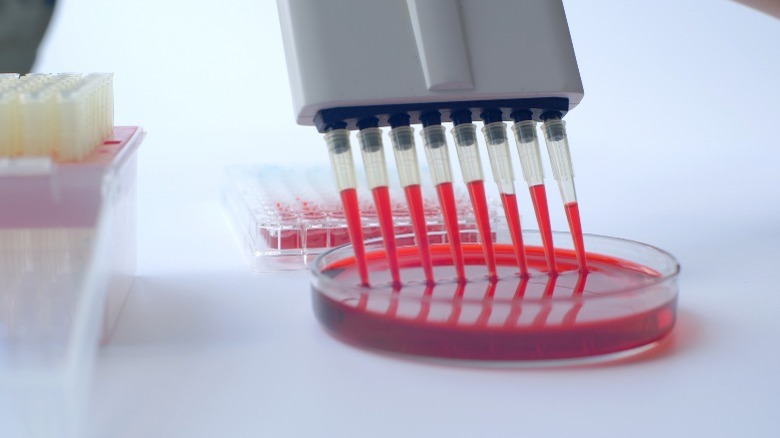Research Reveals A Vital Predictor In Determining Whether You'll Develop Long COVID
When symptoms of COVID last more than several weeks, months, or longer, it is known as long COVID (per Centers for Disease Control and Prevention). Incredibly, there have been cases of long COVID that have affected people for two years, reports Reuters. While long COVID is common in those with extreme infection, it can also occur in those with a mild infection or even those who are asymptomatic. Common long COVID symptoms include — but are not limited to — brain fog, blood clots, cough, dizziness, fatigue, fever, shortness of breath, and pain in the chest, joints, or muscles, says Mayo Clinic. Notably, severe illness from COVID can cause organ damage, which may help explain continued health issues.
According to the American Medical Association (AMA), there are three different kinds of long COVID. The first kind is when you do not fully recover and have continued symptoms; the second kind is when you remain hospitalized in the intensive care unit; the third kind is when symptoms appear after you recover. The AMA notes that there are even some post-COVID clinics to help properly diagnose and treat it. Now, researchers may have found a way to help identify a person's potential risk of developing long COVID.
Long COVID and blood tests
Considering the health consequences of long COVID, a screening test that could identify which patients are most at risk of developing long COVID could be paramount. As it turns out, researchers may have taken the first step towards that. A small 2022 study led by University College London researchers, published in the journal eBioMedicine, analyzed the blood of healthcare workers who had confirmed, but not severe infection from the coronavirus. There was also a control group who had not been infected.
According to Medical News Today, the analysis revealed that those infected with COVID showed increased levels of 12 types of proteins that play a role in free radicals and metabolism, among other cell-related behavior. Further, 20 proteins — some of which reportedly are involved in anti-blood clotting and anti-inflammation factors — were identified as predictors of long COVID. While more testing is needed, there is one promising aspect of the research. The University College London reports that the blood test was analyzed by artificial intelligence, which could "analyze thousands of samples in an afternoon."


